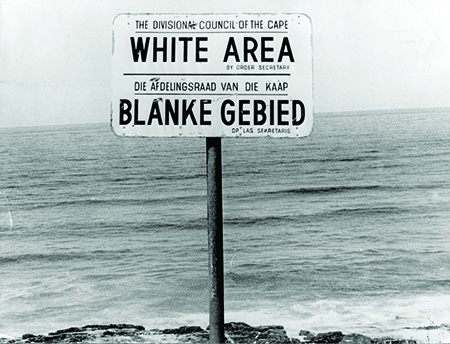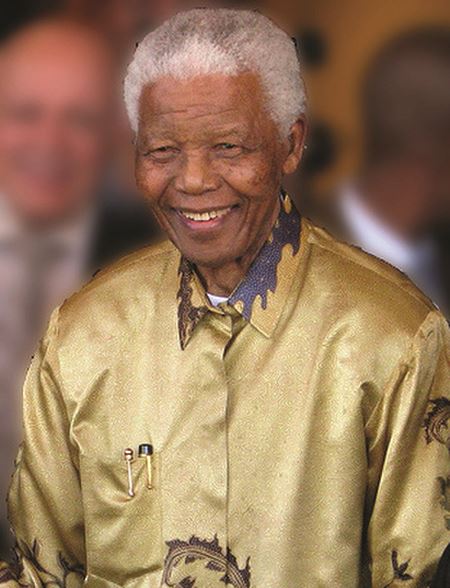Age Five: The Price of Being Fair
24. Apartheid
Apartheid refers to a system in which races are kept apart by law and provided with separate resources. The word generally refers to the system in South Africa (see glossary item below) from 1948 to 1994. The word “apartheid” is a word in Afrikaans (one of the official languages of South Africa and the one principally spoken by the white citizens there) meaning “the state of being apart,” literally “apart-hood.”
![]()
In the alternative reality of Danielle, Chronicles of a Superheroine, five-year-old Danielle explains to a CNN journalist that the American system of providing some rights, such as education and health care, to so-called illegal immigrants, but not all the rights official citizens enjoy is equivalent to a second class of citizenship and therefore amounts to “American apartheid.”
How You Can Be a Danielle and promote racial and gender equality
25. South African Apartheid

A sign from the Apartheid era in South Africa. “Blanke Gebied” means “White Area” in Afrikaans, the primary language spoken by whites in South Africa
The roots of white supremacy in South Africa go back to its colonization led by the Dutch East India Company in the seventeenth century. In the late 1600s, there were three wars between the Dutch and the Khoikhoi people (indigenous pastoral people of South Africa who lived there from at least the fifth century AD) resulting in the Khoikhoi being forcibly evicted from their native lands.
By the early twentieth century racial segregation and mistreatment of the black and colored populations of South Africa were well established. South Africa gained independence in 1910, and in 1913 the Land Act forced black South Africans to live in reserves that had little in the way of natural resources. Opponents of this policy created the African National Native Congress which later became the African National Congress (ANC), the ruling party of the anti-Apartheid movement.
The worldwide Great Depression of the 1930s and World War II deepened the economic problems of South Africa, leading the white-controlled government to increase its segregationist policies. In 1948, the Afrikaner National Party campaigned with the slogan of “Apartheid,” meaning “separateness.” In 1950, the government banned marriages between whites and nonwhites. The Population Registration Act of 1950 classified South Africans by race and severely restricted their educational and employment opportunities. Follow up legislation reserved 80 percent of the nation’s land for whites.
A thirty-year campaign to oppose South African Apartheid began in the early 1960s. Nelson Mandela, a key ANC leader, was arrested in 1962 and began a twenty-seven-year imprisonment in 1963, although he continued to provide leadership for the anti-Apartheid movement from prison. There was widespread international support for ending Apartheid including effective boycotts of South African products.
In the 1980s, the National Party government of Pieter Botha tried to defuse international pressure by ending the ban on interracial sex and marriage, however this did not end the legal basis for pervasive discrimination. Botha stepped aside in 1989 and F.W. de Klerk became president. After Mandela was released from prison in 1990, he and de Klerk negotiated a new national constitution and an end to Apartheid. Mandela was elected president of South Africa in 1994 in the first election that saw the full participation of all racial groups. Mandela and de Klerk shared the Nobel Peace Prize in 1993.
![]()
In the alternative reality of Danielle: Chronicles of a Superheroine, five-year-old Danielle and her family discuss South African Apartheid and what it took to end it.
How You Can Be a Danielle and promote racial and gender equality
26. Nelson Mandela
Regarded as one of the great freedom and democracy fighters of all time, Nelson Mandela (1918–2013) was elected president of South Africa in 1994 in the first election that had the participation of all racial groups. He and the former president, F.W. de Klerk, with whom Mandela had negotiated the end of Apartheid, shared the Nobel Peace Prize in 1993. See the previous entry for a brief history of apartheid in South Africa.

Nelson Mandela in 2008
![]()
In the alternative reality of Danielle: Chronicles of a Superheroine, Claire comments on Nelson Mandela’s role in ending South African Apartheid.
How You Can Be a Danielle and promote racial and gender equality
